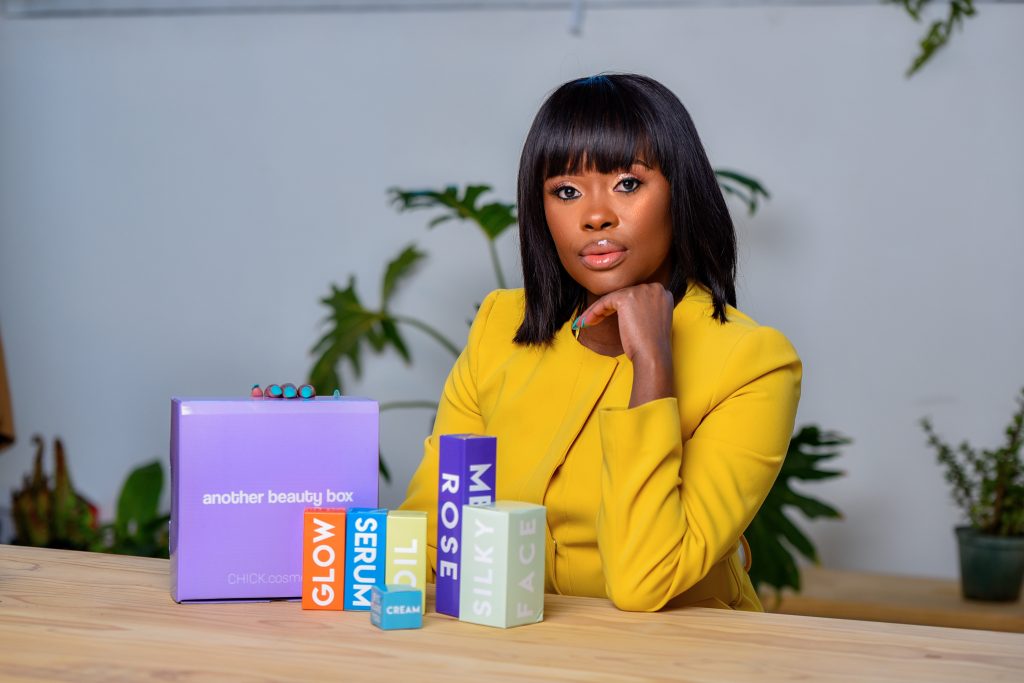You can also listen to this podcast on iono.fm here.
SIMON BROWN: I’m chatting with Mafahle Mareletse, the MD for Avon Turkey, Middle East and Africa. Mafahle, I appreciate the time today. Avon, which has always been a direct consumer brand, is starting to move into retail stores – bricks and mortar and the like – starting in Limpopo. What’s the thinking here with the business moving into more traditional bricks and mortar?
MAFAHLE MARELETSE: Well, it’s not moving into traditional bricks and mortar. It remains relationship selling, where the representatives or consultants are still the intermediary. So we will not go into high-end retail or high-street retail. We will go into retail through a franchise model, where our representatives or consultants are still the people who have that relationship with our consumers.
SIMON BROWN: I’ve got you, because the important part has always been between the brand and the consumers being that representative, the reseller. I imagine for many of them it’s a smallish sort of side hustle, but for some it’s probably a fairly big job, and a fairly serious source of income.
MAFAHLE MARELETSE: Yes, there are many people who are our top sellers who run these businesses. They actually employ people who help them – administrative assistants. They have warehouses.
Therefore we are giving them the opportunity as consumers move out of direct selling into digital, into retail, to ensure that they can also exploit those trends.
SIMON BROWN: That makes perfect sense then, because I always thought it was more someone perhaps doing it as a sideline. But if this is a proper retail operation for them, bricks and mortar is an obvious next step.
MAFAHLE MARELETSE: Yes. We’ve already gone digital, where we offer them digital tools and they can have their own digital stores. And we have apps where they can connect with their customers digitally and do their whole businesses completely digitally.
But there’s also the element of retail, where there are many South Africans who shop retail and don’t shop either via direct selling or digitally and want to go into shops where they can touch and feel, try products. Therefore that’s the space that we’re moving into to make sure that we satisfy all consumers in an omni-channel manner and give them the choice of how they want to access our brands and products.
SIMON BROWN: I get that. That makes perfect sense. In terms of the customers it’s tough out there. We’ve just chatted with the MD of Transaction Capital. Are you seeing customers shopping down, perhaps buying cheaper products, perhaps even buying a little less product? I’m thinking of the lipstick effect – folks say in tough times women still buy lipstick, though perhaps less of other products.
MAFAHLE MARELETSE: Look, we’ve seen people down-trade out of us in your lower economic stratus going for cheaper brands, but we’ve also seen people who have been using high-prestige brands also down-trade to us, people who suddenly realise that we offer excellent value, and our products are of extreme high quality. In fact, in many blind tests that we’ve conducted in many parts of the world our products actually test better than premium brands. And the technology is very strong. Quality is very good. So people are starting to realise that we offer value for money. That’s part of the reason we want to venture into retail, into shopping malls and shopping centres, so that people who have never had access to our brands and products can then trial them.
SIMON BROWN: In terms of sales the pandemic must have had some impact. But because it’s sort of direct-to-consumer via the resellers the impact might have been less bad during the pandemic. Have you recovered subsequently? Are sales trading back at 2019 levels or higher?
MAFAHLE MARELETSE: During the pandemic we did get impacted negatively because most of our product portfolio was regarded as non-essential. So people couldn’t buy fragrances, couldn’t buy lipstick. And then obviously the wearing of masks impacted your lipstick sales quite a lot because when people had masks they didn’t use lipstick. And when people were at home, they didn’t use fragrances, they didn’t use lipstick.
What we tended to see was an increase in our toiletries – body care and more toiletry-type products. But those which are our biggest categories actually suffered.
As a result some consumer habits have changed, and we’re realising that it’s taking consumers a long time to get back to pre-2020 habits in terms of usage and the frequency of usage of things like lipstick. So we haven’t recovered to 2019 levels. But every year since 2020 we’ve seen an improvement – and we will get there. I believe we should be getting there by the end of this year.
SIMON BROWN: I take your point. I think we forget – certainly I’d forgotten – just how severe those recent lockdowns were. Of course, there were all sorts of things beyond just alcohol and tobacco that we couldn’t buy, even online, for a number of months.
We’ll leave it there. Mafahle Mareletse is MD for Avon Turkey, Middle East and Africa. I appreciate the time.
Listen to the full MoneywebNOW podcast every weekday morning here.

